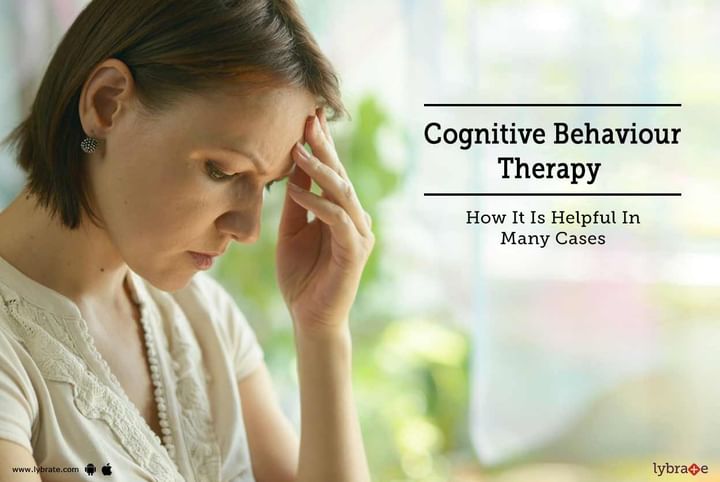Cognitive Behaviour Therapy - How It Is Helpful In Many Cases
For every individual, both physical and mental well-being is essential to lead a happy life. And with the advancement in medical science, not only physical illness, but a host of psychological issues both on a mild and severe level can be effectively treated.
Cognitive behavioral therapy or CBT is a talking therapy that is focused on helping patients manage their problems by helping to change their way of thinking. Though it is primarily known for assisting in dealing with issues like anxiety, depression, it proves to be equally helpful in treating physical as well as mental health problems. Keep on reading to know more about it.
What are the features?
Cognitive behavioral therapy focuses on treating problems that a person experience in his or her day to day life. This treatment is not only time-limited, for example, 6 to 20 sessions for useful results, but also follow a goal-oriented and problem-focused approach for teaching new coping skills and strategies.
What are the benefits?
Depending on the severity of the patients' condition, treating them with cognitive behavioral therapy has many benefits to offer. From helping the patients to identify their negative emotions and thoughts, to making them more capable of managing anger, cope with loss and grief and overcome sleep disorders. Even when it comes to reducing the risks of addiction relapse or dealing with post-traumatic disorders or resolving relationship difficulties, CBT can play a significant role.
How does it work?
With the help of a therapist or the professional psychologists, in this therapy, the patients learn to question, analyze, change and identify their thoughts, beliefs, attitudes that relate to their behavioral and emotional reactions which are the leading cause that keeps on troubling them. Here the therapists usually monitor and record the thoughts of the patients during different situations which helps them to better deal with their anxiety and depressions.
During the sessions, the patients are taught to identify distortions and disfigurements in their own thoughts and perceptions, to consider their thoughts as only ideas about what they are seeing or happening around them instead of considering them as facts and to refrain from assuming their thinking to be true while becoming capable of thinking from different point of views.
What illnesses can be treated by the procedure?
The majority of studies have shown the cognitive behavioral therapy to work great for treating depression and anxiety. However, it can be tailored for treating other illnesses as well, such as bipolar disorder, disorders regarding substance use, eating disorders, specific phobias, panic disorders, anxiety disorder, psychosis and schizophrenia, post-traumatic stress-related disorders and more.
So, if you are bogged down by anxiety and stress, consult a psychologist immediately. Because, it takes a psychologist to determine your state of mind best, identifying the root problem and then determining whether it's CBT that can be the ideal treatment and proceed.



+1.svg)
